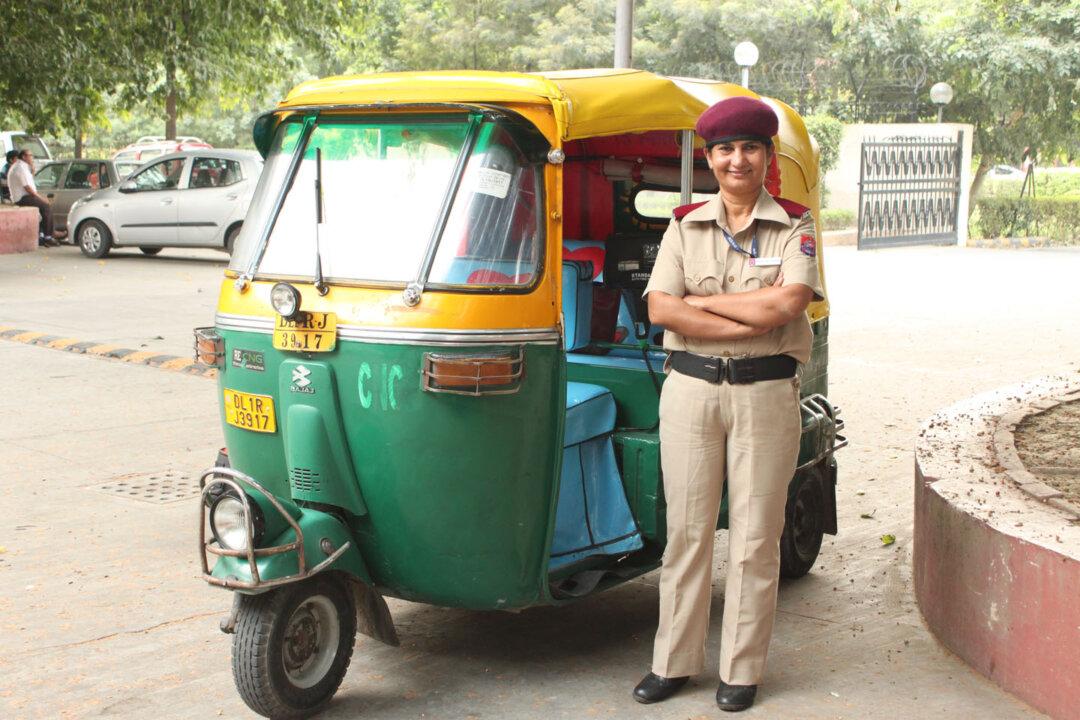NEW DELHI— Married at 14 to a man almost twice her age, beaten almost to death within a year of their marriage, and then abandoned as a mother at 15, Sunita Choudhary is now an empowered women’s rights activist. And she may be the only woman in New Delhi who drives a three-wheeled taxi, or an “auto” as it is called in India.
“I’m the only woman auto driver in the city among 100,000 male drivers,” she said confidently.
She started this job as way to make money while fighting court cases against her husband and in-laws.
“My in-laws always complained that I didn’t get enough dowry. They wanted a car from my parents,” she explained in Hindi.
“One day my husband and his friends asked for an outing to Agra [the city where the Taj Mahal is]. On the way, they forcibly took me to the jungle, tied me, and beat me very badly with sticks. They were digging my grave in the dark when I regained consciousness and escaped,” recounted Choudhary with tears in her eyes.
Pointing at the thick, rugged branches of a tree in front of her parked auto, she said, “They beat me with those kinds of sticks.”
Domestic Battle
Choudhary endured many misfortunes very early in life.
She had a child at 15, but was advised to abort the child because it belonged to her abusive husband. Choudhary refused after seeing the abortion instruments in the hospital and decided to keep the child. “Seeing those things, I felt very afraid,” she recalled.
She had her son, but he was very sickly, and died at 8 months old.
“After I lost my child, I felt like my life was done. I then decided I must get justice for myself.”
After her in-laws attempted to kill her, Choudhary left the village where her family and husband lived and moved to Delhi.
Legal Battle
For years, she worked as a helper in homes and in various factories to support herself.
“I was fighting a court case against my husband then and had to miss work and was losing money. I then thought about working as an auto driver as it would allow me the flexibility to earn money when I wanted,” she said.
She had to travel a lot because the court case against her husband was transferred from Delhi, where Choudhary lived, to neighboring Haryana State.
Her in-laws tried to win the case through bribes, but were unsuccessful, and after a 12-year struggle, Choudhary won. Her husband was sent to jail and forced to pay her alimony.
Family Support
What made this hard time in her life all the more difficult is that Choudhary did not have the support of her own family.
“In my community they say once a woman enters her husband’s home, she should only come out as a dead body,” she explained.
It speaks to her character that, after all that has happened, she still takes care of her parents.
“Life is hard. It teaches one to live,” said Choudhary, who is now 35 years old.






